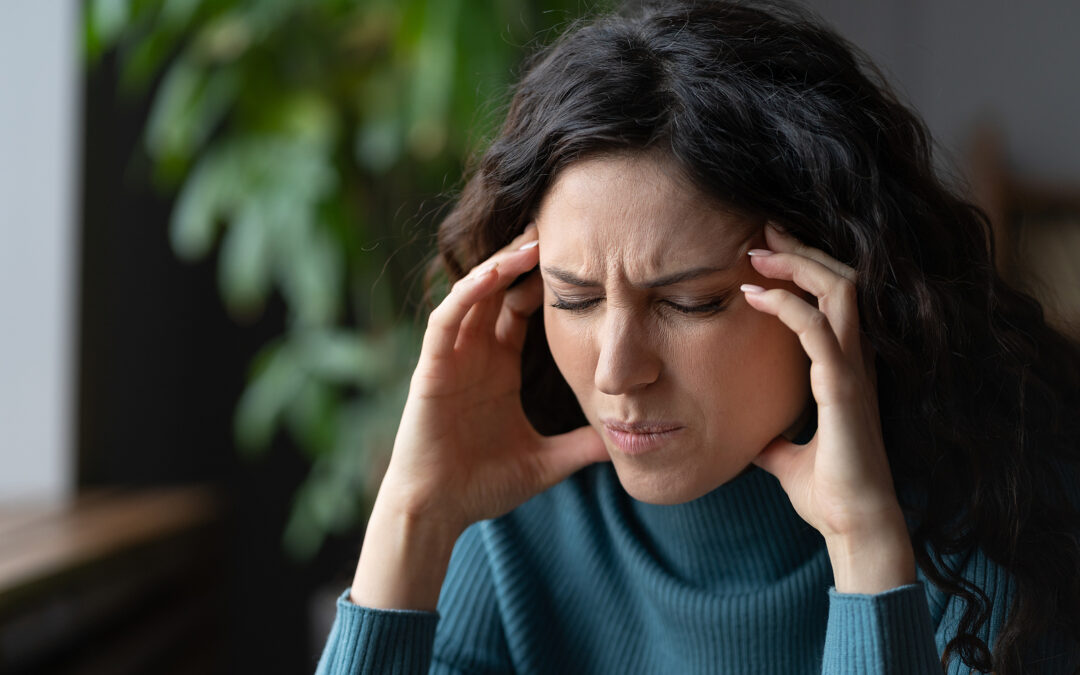The effects untreated hearing loss can have on mental health are often underrecognized. Untreated symptoms strain communication which is tied to relationships, social connection, and daily living. Studies show that people with hearing loss can be more than twice as likely to experience depressive symptoms. Fortuenaly, treatment offers solutions that not only transform hearing health but also wellbeing. Research highlights that hearing aids can improve depressive symptoms, boosting mental health.
Link Between Untreated Hearing Loss & Depression
Extensive research shows a correlation between hearing loss and depressive symptoms. A significant study that investigates this link involved assessing hearing health and evaluating depressive symptoms among 18,318 people. Participants completed a questionnaire that assessed depressive symptoms and also had their hearing tested. Researchers found that the prevalence of moderate to severe depression was:
- 4.9% for individuals reporting excellent hearing
- 11.4% for people who reported a little to greater hearing loss
This data shows that people with hearing loss were more than twice as likely to experience depressive symptoms. These findings highlight that hearing loss can take a toll on mental health and wellness.
Impact of Hearing Loss on Mental Health
Hearing loss can have a cumulative toll which includes contributing to depressive symptoms. A few significant ways that hearing loss can do this are:
- Straining communication: hearing loss reduces ability to hear speech and sound. This creates a number of symptoms that make it tough to participate in conversations. Symptoms can include tinnitus which is a ringing or buzzing noise in the ears, distortion or muffling of sounds, and difficulty hearing speech in places with noise. These symptoms serve as barriers, making it challenging to participate in conversations.
- Social withdrawal: strained communication often leads to people avoiding communication as much as possible. This includes skipping out on social events, spending less time with loved ones, and participating in hobbies/activities a lot less. Social withdrawal produces greater isolation, loneliness, stress etc. which contributes to or exacerbates depression.
- Impacting relationships: the impact untreated hearing loss has on relationships can also contribute to depressive symptoms. Untreated hearing loss can restrict conversations, affect quality time, and impact connection. People often report feeling unheard or ignored by their loved one with hearing loss This can produce tension, frustrations, and distance in relationships.
The effects of untreated hearing loss can deteriorate happiness and quality of life. People’s relationships, social life, and wellness can suffer which contributes to depressive symptoms. This highlights the importance of intervening and seeking treatment.
Hearing Aids Improve Depressive Symptoms
There are effective hearing solutions that can completely alleviate these symptoms. The most common treatment for hearing loss is hearing aids. These are electronic devices that are designed to absorb, amplify, adn process speech as well as sound. This provides the ears and brain with significant hearing support which alleviates the symptoms people experience on a daily basis. Hearing aids offer numerous benefits including improving depressive symptoms. Various studies show that hearing aids can boost mental health.
A major study that evaluates the link between hearing aids and depressive symptoms assessed the impact of wearing hearing aids after 6 months and then again after 1 year. The study included 113 participants, ages 50 and older. Researchers found that depressive symptoms improved by:
- 28% after 6 months of wearing hearing aids.
- depressive symptoms decreased by another 16% at the 1 year mark.
This data shows how hearing aids can significantly improve depressive symptoms. Hearing aids strengthen communication which helps people navigate daily life with greater ease, confidence, and safety. Strengthened communication improves relationships, supports social connection, and enhances sense of self. These benefits alleviate depressive symptoms and boost mental health and overall wellness. \
Prioritize Your Hearing Health Today
The first step you can take to prioritize your hearing health is scheduling an appointment for a hearing test. Conducted by a hearing healthcare specialist, hearing tests involve a painless process that measures your hearing capacity in both ears. This identities any hearing loss and specifies your hearing needs which informs the treatment options that are optimal for you. Contact us today to schedule an appointment for a hearing aid consultation. We look forward to helping you access the life changing benefits of treating hearing loss.


